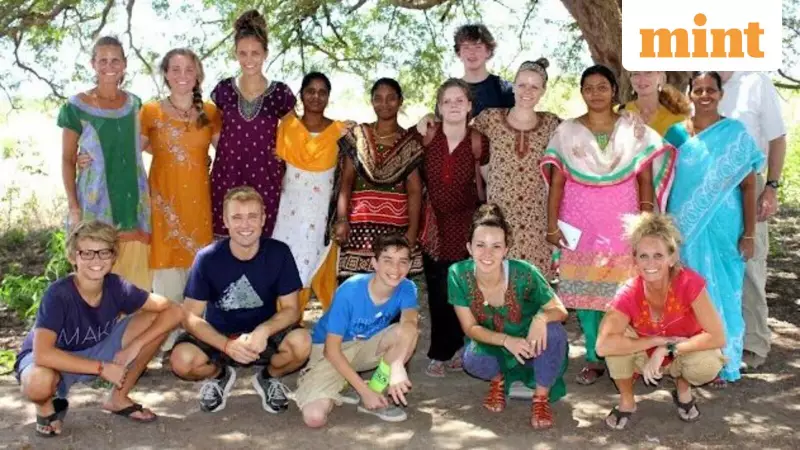
Data Fragmentation: The Silent Barrier to Social Impact in India
For nonprofit organizations operating at scale across India, the most significant obstacle to creating meaningful change isn't typically funding or staffing shortages. The real challenge lies in fragmented data systems that prevent organizations from accurately measuring and optimizing their impact. Whether focused on healthcare access, educational programs, or community development initiatives, the ability to quickly analyze outcomes determines how effectively resources are deployed across underserved regions.
Rising Star Outreach, working across more than 100 underserved communities throughout India, faced this exact challenge. Their comprehensive programs span multiple critical areas including education, medical care, microfinance, sanitation projects, and broader community development efforts. Supported by teams distributed across India and the United States, the organization previously relied heavily on manual data collection methods, spreadsheets, and email communications to track their progress.
The Transformation Through Domo AI Platform
The turning point came when Rising Star Outreach implemented the Domo AI and Data Products Platform through the Domo for Good initiative. This global program provides nonprofit organizations with enterprise-level data tools and volunteer expertise typically inaccessible to the social sector. The adoption has fundamentally changed how Rising Star Outreach measures outcomes, reports to stakeholders, and directs its diverse programs.
Before integrating Domo, each program within the organization documented updates using different formats and varying frequencies. Simple information requests—such as determining how many students showed academic progress in a given year or assessing how water projects influenced health outcomes—could consume days or even weeks to compile manually.
Brett Caywood, president of Rising Star Outreach, emphasized the significance of this shift: "For an organization working across two continents and ten program areas, having fast access to accurate data changes everything. Domo is giving us insights so we can see what is working, where we are falling short, and how to lead differently to achieve our goals."
Building Real-Time Operational Visibility
By connecting its medical, education, community development, HR, finance, and donor management systems into Domo, Rising Star Outreach now maintains a unified, real-time view of its operations. More than 170 employees across India and the United States, including 90 active Domo users, can access dashboards that previously required weeks of manual compilation.
An early demonstration of this capability involved analyzing the relationship between infrastructure improvements and health outcomes. Previously, data concerning clinic visits, sanitation efforts, and environmental factors existed in separate systems. With Domo, frontline teams can now correlate specific interventions—such as installing clean water systems—with measurable improvements in community wellbeing. These insights directly inform ongoing program prioritization and resource allocation decisions.
Accelerating Data Literacy Through Strategic Partnership
To accelerate this digital transformation, Rising Star Outreach joined Domo for Good, which provides nonprofits with software licenses and connects them to technical experts who help build dashboards, train staff, and strengthen long-term data practices. The organization partnered with John Le, founder of Dashboard Dudes, who worked directly with the Rising Star team to develop their initial dashboards.
"Within a week, I built their first dashboard showing student progress year over year by test, gender, and subject," Le explained. "That led to insights they had never seen before and helped their team understand what information was most meaningful for leadership and donors."
As staff gained familiarity with the platform, Le transitioned to coaching them on how to build and maintain dashboards independently. The objective extended beyond automation to establishing long-term data self-sufficiency.
Kristen Edwards, sponsor director, noted the significance of this partnership: "For a nonprofit without a full-time data team, the Domo for Good partnership was game-changing. It gave us hands-on support and access to enterprise technology without the financial barrier."
Tangible Benefits: Reporting Efficiency and Funding Impact
The most immediate improvements emerged in reporting speed and accuracy. Grant applications that previously required teams in India and the US to exchange spreadsheets over multiple days now take minutes to complete. Donor reports can be generated on demand with verified metrics, significantly enhancing organizational credibility.
Tawna Fowler, development director, highlighted the operational improvements: "Domo has helped make us so much more efficient. If a donor wants to know how many people we served or the effectiveness of a specific project, we can produce that instantly."
This enhanced capability has strengthened the organization's ability to attract and retain institutional funders, who increasingly expect high-quality data transparency within India's social sector.
Cultural Shift: Data-Driven Decision Making Across Teams
Perhaps the most profound transformation has been cultural. Teams across India now base decisions on real-time insights rather than intuition or delayed reporting cycles. Teachers can track student performance trends, community development teams can evaluate program ROI, and medical units can identify patterns in treatment outcomes.
"Domo gives us the data to back up the story we tell," Caywood observed. "We are able to make decisions faster and with more confidence than before."
This evolution reflects a broader trend within India's development ecosystem, where social sector organizations are adopting technology stacks once reserved for corporate entities. AI-powered dashboards, automated reporting flows, and integrated impact measurement systems are becoming essential tools for organizations seeking to operate at scale while meeting rising expectations from CSR partners, global donors, and regulatory bodies.
By modernizing its data infrastructure, Rising Star Outreach has not only streamlined internal operations but also enhanced its storytelling capabilities, accountability mechanisms, and capacity to scale programs effectively across India. The case demonstrates a compelling principle for India's broader social sector: when nonprofits apply enterprise-grade data tools to mission-driven work, impact doesn't just grow—it compounds.





